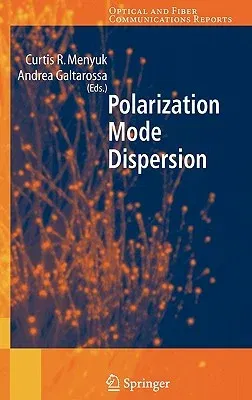the model for low-PMD ?bers; Nicolas Gisin covered the increasingly
important topic of the interaction of PMD with polarization dependent
loss. Other topics that were included in the school were: "PMD models,"
which was covered byAntonio Mecozzi and Mark Shtaif; "Interaction of PMD
with nonlinearity and chromatic dispersion," which was covered by Curtis
Menyuk; "PMD measurement techniques," which was covered by Paul Williams
and by Marco Schiano in two separate lectures; "Spatially resolved
measurement of ?ber polarization properties," which was covered by Luca
PalmieriandAndreaGaltarossa;"PMDimpactonopticalsystems,"whichwascovered
by Magnus Karlsson and by Francesco Matera in two separate lectures;
"Polarization effects in recirculating loops," which was covered by
Brian Marks, Gary Carter, and Yu Sun; "PMD Emulation," which was covered
byAlan Willner and Michelle Hauer; and, nally, "Applications of
importance sampling to PMD," which was covered by Gino Biondini, Bill
Kath, and Sarah Fogal. Dipak Chowdhury worked withArtis and VPI-two
producers at that time of commercial software for modeling optical ?ber
communications systems-to present a lecture that covered numerical
modeling of PMD. Additionally, we had lectures on special topics by
Hermann Haus, Jim Gordon, Herwig Kogelnik, and Carlo Someda. Finally, we
had a poster session, which gave the lecturers the opportunity to learn
something from our participants. The feedback that we received from the
participants and the lecturers was ov- whelmingly positive. This success
was due to the great time and energy that all the instructors put into
their lectures.

